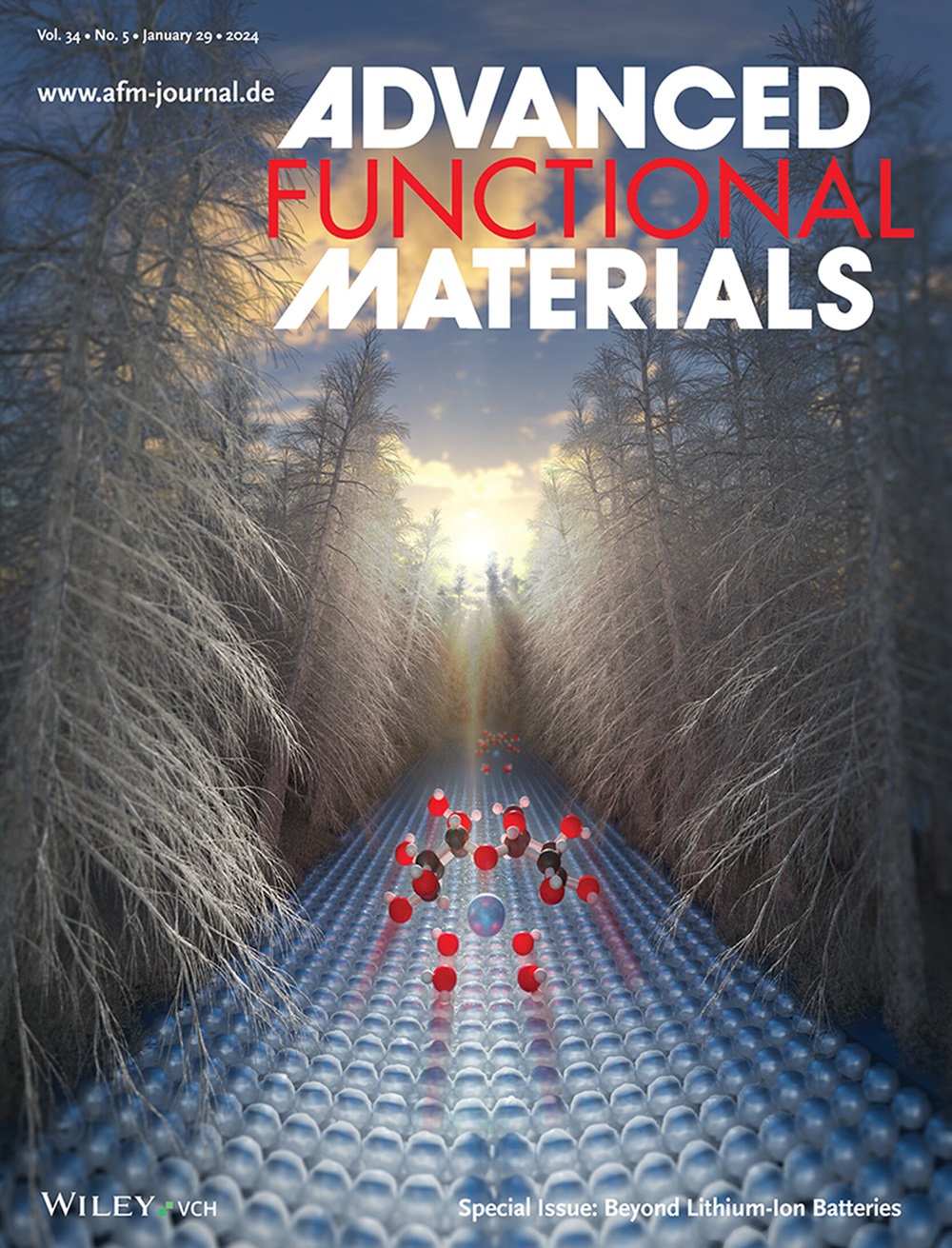A Jointly Triggered H2 Evolution Model Modulated Polyanionic Hydrogel Electrolyte for Reversible Zn Chemistry
IF 18.5
1区 材料科学
Q1 CHEMISTRY, MULTIDISCIPLINARY
引用次数: 0
Abstract
Hydrogen evolution reaction (HER) significantly deteriorates the stability of electrolytes and Zn anodes, yet the dominant factor of different H2 evolution stages is still unclear, especially in hydrogel electrolytes. Herein, a Zn2+-solvated water deprotonation and free water ionization jointly triggered HER model is revealed by an anionic group gradient regulating strategy in a polyanionic hydrogel electrolyte system (PAHE). Combining experimental characterizations and theoretical calculations, this confirms that solvated water and free water are the key variables dominating the onset potential and intensity of HER, respectively. An in-depth understanding of the HER process realizes better HER inhibition through synchronously weakening onset potential and HER activity. Additionally, fixed multi-polyanions and salt anions endow PAHE with high cation transfer efficiency and accelerated desolvation kinetics by forming cooperative ion pairs. Consequently, structurally and electrochemically stable PAHE optimizes the Zn-electrolyte interface, markedly enhancing Zn chemistry reversibility. As a proof-of-concept, Zn/PAHE/LFP batteries yield superior capacity retention (>99.88% pre-cycle), rate capability (up to 25 C), cycling durability (over 10000 cycles), and wide-temperature adaptability.

求助全文
约1分钟内获得全文
求助全文
来源期刊

Advanced Functional Materials
工程技术-材料科学:综合
CiteScore
29.50
自引率
4.20%
发文量
2086
审稿时长
2.1 months
期刊介绍:
Firmly established as a top-tier materials science journal, Advanced Functional Materials reports breakthrough research in all aspects of materials science, including nanotechnology, chemistry, physics, and biology every week.
Advanced Functional Materials is known for its rapid and fair peer review, quality content, and high impact, making it the first choice of the international materials science community.
 求助内容:
求助内容: 应助结果提醒方式:
应助结果提醒方式:


